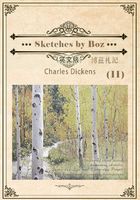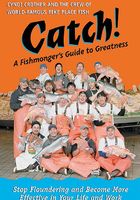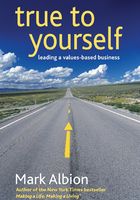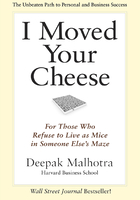What seas what shores what rocks and what islands
What water lapping the bow
And scent of pine and the woodthrush singing through the fog
What images return
O my daughter.
T.S. ELIOT. 'MARINA'
The hall I sat in was long, three times as high as it was wide, and yellow, with an arched ceiling of corrugated iron, which once perhaps was glass. Opposite me was another counter, not so much a pawnshop this time, more like a bank.
The young people behind the counter were very cheery and relaxed as they went about the work of protecting Victoria's public records from the public who owned them and might wish to consult them. They knew little of the protocols governing the collection of these records, but they were expert in getting money out of their nervous clients. For the exorbitant sum of $18 they would agree to undertake a search, but such a search would need at least five working days to complete. None of their clients knew enough to know that if the search took half an hour, it was already unusually long. I watched as people who had made the initial visit, paid their $18 and now returned to collect their documents were told to wait on the hard bench beside me. The hum of lazy chit-chat on the other side of the barrier would be momentarily stilled as a clerk would get languidly to his feet and stroll out of sight. This barely perceptible movement signalled in fact the beginning of the 'search', which was after all only a flip through a microfilm. For $18 the client bought an artificial wait and the privilege of making another visit. For an extra $19 the clerks would graciously consent to look out and copy the documents 'today'.
Family history is said to be already the most popular hobby in the United States, and the number of enthusiasts continues to grow exponentially; what happens in the United States invariably presages what is to happen in Australia. As long as the demand for replicas of official documents came principally from lawyers there might have been some justification for high charges; most family historians are pensioners, who are as poor in Australia as they are elsewhere in the English-speaking world. The Registrar-General's department is fast hauling back the pittance doled out to retired people by the state. What they could be doing with the money was more than I could guess, sitting on a hard bench in the makeshift hallway, waiting for a piece of paper that had cost me $37.
If I had only known, they were already extending to me a degree of privilege, for Australian children are not entitled to see their parents' marriage certificates upon request. In Australia the only people entitled to see the official record of a marriage, as of right, are the parties to the marriage. The purpose of such legislation (if indeed the practice is enshrined in law and not merely the rule-book of the Australian civil service) seems to be to allow bigamists to bigamise without fear of discovery. There is no stigma on illegitimacy, which is at least as common in Australia as in all other English-speaking countries. The regulations hark back to a more hypocritical and neurotic era when Australians were less interested in their family history than they were in claiming a respectability their families had never had.
Despite the atmosphere of casual kindliness, I could not stop the flutter in my chest. If compiling family history was now the favourite pastime of retired Australians, it was not mine. The old ladies beside me on the bench kept up a running chatter about their grandfathers in the Victorian goldfields; I listened enviously as they discussed the whereabouts of the mining claims their forebears had filed, parish records in Daylesford and a certain Mary who may or may not have been white and may have been wife to more than one man at a time. For them it was all a wonderful adventure; for me it was the primal elder's curse all the way.
I distracted myself by trying an ethological study of the genus 'Victorian Civil Servant'. The uniform adopted by almost all those I could see was stretch jeans, trainers and windcheaters, for male and female alike. The windcheaters were insulation against the chill south-westerlies funnelling down the city streets; the jeans were sexual display; the trainers did not noticeably speed up the pace of the individuals who chose to cross and recross the hall with files clasped to their windcheaters, but they did allow a slow motion version of a walking racer's provocative hip-roll.
I tried guessing which windcheater was pressed against my family record. I heard a microfilm being rewound and my heart wound itself up tighter. One of the old ladies at the counter was pleading, 'This is my third visit. On my pension I can't afford all this travelling.'
The beardless bureaucrat gave her the classic response, 'Insufficient information. You'll have to pay another search fee.'
'The surname could be spelt without the "e", and sometimes it's "ea" or "ie",' ventured the old lady.
'Then you'll have to make applications in the different names.'
The old lady took some forms and turned back to the bench.
'And you'll have to pay a search fee for each name.'
The old lady put the forms back and walked away down the hall.
I wanted to talk to someone. I wanted to ask why the indexes to the records could not be made public, so that anyone could search and find out if a document was held. Concern for privacy could come into operation when permission to see the document was requested. The system that allowed them to screw money out of us all was cruel and idiotic. I longed for good old St Katherine's House, where we all toiled through the indexes side by side, lawyers' runners, family historians and searchers for missing persons alike. If you wanted to read all the Greer births from 1850 to 1950 you could. I had. After a morning of heaving bulky volumes and fighting for space at the reading benches, while my ankles swelled from standing with my bag on my feet so nobody could walk off with it while I made notes. I had the names of all the Greers born in England and Wales between 1900 and 1910, whether in Aberystwyth, Alverstoke, Ashton Park, Aston, Barnet, Barrow-in-Furness, Barton Island, Bethnal Green, Birkenhead, Brentford, Camberwell, Canterbury. Cardiff, Chorlton. Devonport, Edmonton. Epsom, Fylde. Gateshead, Godstone, Grimsby, Halifax, Hendon, Holborn, Kensington, Lambeth, Lanchester, Leeds, Lewisham, Liverpool, Manchester, Medway, Middlesborough, Milford, Neath, Newcastle-upon-Tyne, Oldham, Ormskirk, Paddington, Poplar, Portsea, Portsmouth, Preston, Prescot, Prestwich, Romford, Runcorn, St German, Salford, Settle, Sheffield, Shoreditch, Southwark, South Shields, Swindon, Stoke-on-Trent, Tonbridge, Toxteth, Tynemouth, West Derby, West Ham, Whitechapel, Whitehaven, Wigan, or Woolwich, 266 Greer babies in all, 139 of them boys, and none of them an Eric Reginald.
By lunchtime I knew for sure that wherever Eric Reginald Greer was born, and my grandparents were born and married, it was not in England. Simply to confirm that my father was not born in Australia would cost a search fee to each of seven state record offices, and would not eliminate the possibility that his birth was registered under a slightly different name or guarantee that the relaxed young persons entrusted with the job had done it with due diligence, or checked possible alternate spellings.
This time I did not make the mistake of suggesting that Australians adopt the English system. I waited cowed and obedient. During the time I sat on the bench I saw only one person come away from the counter with the document she had paid for. As my face burned under the stares of the clerks who came out from the inner office for a look at me. I scribbled desperately in my notebook. What if it was all an act? What if Daddy's dignified, standoffish manner was all invented, modelled on some movie hero, some member of the royal family, or the Saint by Leslie Charteris? They called him the Toff, a fictional title for a fictional man. What if he pretended to be upper crust, top drawer, and invented the kind of past for himself that could never be checked? Perhaps he stayed in his dead-end job among advertising men because he was unlikely to meet anyone who would see through his act? If Daddy had ever claimed an ancestry or hinted at a claim, I would find it easier to believe that he was a phony. He said nothing, after all. He wore no old school tie. He made no attempt at social climbing. His toffishness was evinced mostly in his reluctance to hobnob with hoi polloi, and his treating himself to a bespoke tailor.
To be a Greer is not to be just anybody. Greers are not Smiths or Browns or Greens. The name has a history and a meaning, whether it is encountered in England, Scotland, Ireland, Australia, Canada, South Africa or the United States. Or the Isle of Man.
The Greers can trace their line back to the Scottish kings. The Greers who care about such things (of whose number Daddy was not) believe that they are descended from the ancient Highland clan McAlpin, via the third son of King Alpin, who was called Prince Gregor. Prince Gregor's elder son, Dongallus, married Spontana, sister of Duncan, one of the Irish kings, and their firstborn son, Constantine, married his cousin Malvina and they called their son Gregor. Gregor, standard-bearer to his uncle, Malcolm I, was killed by the Danes in 961. His wife Dorigelda had given him a son John, who married Alpina, daughter of Alchaius, brother of Kenneth the Great. The line continues through the seventh generation with Gregor, Laird of Glenurchy, who married the daughter of Lochow, ancestor of the Dukes of Argyle. His son Gregor was Bishop of St Andrew's. The line continues through Sir John McGregor, Laird of Glenurchy, one of whose sons, Gregor, was Bishop of Dunkeld and Lord Chancellor of Scotland in 1157. His eldest son, Sir Malcolm McGregor, married a kinswoman of the king, and his heir, Gregor, married and had a son Malcolm, whose second son, Gilbert Gregorson, took the name Grierson and on 17 May, 1410, received the lands of Lag, Dumfries-shire, from his cousin, the Earl of Orkney, which were inherited upon the death of his eldest son in 1457 by his second son, Vedast-Grierson. His son, Roger Grierson, married a great-granddaughter of Lord Darnley, and by this alliance the Rockhall estates came into possession of the Griersons, who hold them still. Roger's son, Roger, a member of the Scotch parliament in 1487, was killed at Flodden in 1513. The line continues through Sir John Grierson who died in 1566, and his son Roger, who died in 1593, to Sir William Grierson of Lag and Rockhall, and then things get a little muddled.
In 1593 Sir William married Nicola, daughter of Sir John Maxwell, fourth Lord Herries and second son of Robert, fourth Lord Maxwell by Agnes, his wife, who was Lady Herries in her own right, daughter of William, third Lord Herries, and a granddaughter of Archibald Douglas, fifth Earl of Angus. The sons of this alliance were called Grier. Sir James Grier, of Capenoch, Dumfries-shire, and Rockhall, and Alnwick in Northumberland, married a clergyman's daughter, Mary, who was the widow of Thomas Grier of Barjarg Tower, Dumfries-shire. By this time, 1626, there were Greers in Ireland as well as other Griers in Scotland, descended from junior branches of the family. The stock was tough. Despite religious persecution and exile, and for many of the junior branches of the family, grinding poverty, they hung on.
The Greers are amongst the oldest of the Ulster Scots families. In 1622, there were 70 British families, 60 of them Scots, in that proportion of the Barony of Fews which then belonged to John Hamilton, brother of James, first Viscount Clandeboye, many of them Greers. Hamilton bought a thousand acres in Magharyentrim from Sir James Craig in 1615 and he exchanged land in Cavan with William Lauder of Belhaven, Kilruddan, Fews. The muster rolls of 1630 show many of the Greers as having survived Irish attacks that had decimated the settlers.
Once the clan had been parted from its heartland the wandering went on. Ulster was not the end for these rebel Scots, from there they embarked again to America with the Quakers, to South Africa and Australia, fleeing famine, following gold. Where the traumas fell, memories were obliterated. Teenagers arriving illiterate in the new world put their shabby gentility behind them, rolled up their sleeves and set to work, unmindful of the antiquity of their line. They were conscious only that famine and destitution make nonsense of crests and mottoes. For generations the matter was forgotten, until now genealogy has become the hobby of their prosperous descendants.
The motto of the Greers descended in the direct male line from King Alpin is Memor esto, 'Be mindful of your ancestors'. My groaning files bear witness to the fact that many a Greer follows the motto to the letter.
My father would have called it all 'guff'. He wore no ring on his little finger showing the crest of an eagle displayed ppr., charged on the breast with a quadrangular lock. If he knew who the Greers were, he gave no sign of it. He chose no blue-blood for a wife and he made no inquiry about her ancestry when he chose her. Her name was in fact more ancient than his, but neither he nor she had any notion of how she came by it and neither cared.
And nor do I. It was hard to convince the genealogists, riding on the crest of their international wave, that I was not anxious to prove my descent from the kings of Scotland. Librarians assumed when I crept in to continue my father-hunt through the electoral rolls and newspapers in their custody that I was playing family history. They could not grasp what I was saying when I told them that I had no family to write the history of. 'Where is your grandfather buried?' they would ask, with exaggerated patience. Or, 'What does it say on your father's birth certificate?'
One of the reasons I did not order a heavily embossed copper plaque with the Greer arms, 'On a field azure a lion rampant or, armed and langued gules between three antique crowns of the second, on a canton argent, an oak tree eradicated, surmounted by a sword in bend sinister, ensigned on the point with a Royal crown, all 'parti per rect' to hang in the den, or 'embroidered in gold and silver bullion wire thread on a velvet mat blazer badge' is that Daddy would have sneered at such foolishness. Another is that I have no den to hang it in or blazer to sew it on to. Yet another is that the Great Greers might descend on me and trash me for my insolence. I had not even established my right to the name, let alone the arms.
The instructions to family historians are plain: before undertaking any research you must interview all the elder members of your family and write down all they can tell you. You must acquire certificates of births, deaths and marriages, in order to verify the information you have been given. You should try to find the family bible which would have been kept by your grandparents and their parents, if not by less godly generations, and you should locate the family graves. You should consult parish records. In Australia it is essential to do all this, because you cannot search the official records until you already know where to find what you are looking for, so you can then pay someone else an exorbitant sum to look where you tell him.
The genealogists and registered search agents could not understand that I had no one to ask. The only member of his family that I had ever met was my father and for him I had not a single document. I possess nothing of his except a copy of the studio portrait made on his retirement. I did not know the names of his brother and sister, or the name of the school he went to. I had never met anyone who knew him before he was in his late twenties.
I was luckier that day than usual. My thirty-seven dollars paid for a photocopy of the certificate of marriage of my parents made on special paper with an all-over pattern saying 'State of Victoria' a few thousand times. On 27 March, 1937, Eric Reginald Greer, bachelor, newspaper representative, married Margaret Mary Lafrank, spinster, milliner, at St Columba's Catholic Church in Elwood. That much I more or less knew. He was thirty-two; she was (barely) twenty. That too I more or less knew. What I had paid my $37 for were the sections 'Birthplace' and 'Parents' Names'. My father's birthplace was given as 'Durban, Sth Africa', his father as 'Robert Greer Journalist' and his mother as 'Emma Rachel Wise'.
At last, I thought, irreducible fact; economical with the truth though he may have been, I would never have believed that my father would say the thing that was not. Surely he would not have lied to the woman he was marrying, who trusted him enough to give her whole life into his keeping. He was after all a Houyhnhnm. I was (I had to be) sure of that. He looked like a Houyhnhnm with his long ruminative face, and, more to the point, he behaved like one, 'looking with a very mild aspect, never offering the least violence' of word or deed. Like a Houyhnhnm he had 'not the least idea of books or literature' as far as I could tell. Gulliver found it difficult to explain the idea of improbability to his Houyhnhnm master:
'And I remember in frequent discourses with my master concerning the nature of manhood, in other parts of the world; having occasion to talk of lying and false representation, it was with much difficulty that he comprehended what I meant; although he had otherwise a most acute judgment. For he argued thus: that the use of speech was to make us understand one another, and to receive information of facts; now if any one said the thing that was not, these ends were defeated; because I cannot properly be said to understand him; and I am so far from receiving information that he leaves me worse than in ignorance; for I am led to believe a thing black when it is white; and short when it is long. And these were all the notions he had concerning that faculty of lying so well understood, and so universally practised among human creatures.'
(If I had read my Swift aright, I should have known that it was impossible that my father should have been a Houynhnhnm, especially as I know myself for Gulliver's sort of naked Yahoo. But in those days I was still nursing the prelapsarian fantasy that I had escaped the common human lot. I know now that my father's whole life was a lie, yet we were quite correct in thinking that Daddy hated lying, told fewer lies than most people, in fact, said nothing rather than something insincere. The pity of it, to think that a man who hated lying was obliged to lie so hard in order to survive! His heroic lying made it possible for his children to tell the truth.)
I was surprised that I had got my grandmother's name so nearly right, for I had virtually convinced myself that I had invented a Jewish grandmother called Rachel Weiss. Emma Rachel Wise was not quite the same thing; her name was as likely to be Irish or Cornish as Ashkenasy. One thing it was not likely to be was Northern Irish; a marriage between a green Wise and an orange Greer would have been virtually unthinkable in the old country. Although I saw no reason to doubt my grandmother's name as my father gave it, 'Robert Greer Journalist' struck me as a phony. Nevertheless I spent the next month looking for him.
Perhaps the parish priest had asked to see documentary verification of these statements. After all he was not supposed to take the groom's unsupported word for it that he was who and what he said he was. When I looked at the information given about my mother on the certificate I was not reassured about Dr Greenan's thoroughness. My mother was still a minor but consent to her marriage had been given by her mother, as if her father was dead or unreachable, neither of which he was. She had been given away by my uncle, her elder brother. I asked him later why he hadn't got more and better information about the man who was marrying his little sister and he said, ruefully, 'I was only a kid myself'. There cannot have been many virtuous girls so unprotected in Melbourne in 1937.
Because of Daddy's resistance to our attempts to recruit him into the church, we children decided that he must have been true-blue, dinky-di. Nothing would have been easier than to have acquiesced and given lip service. We thought that, though he mightn't say much about anything that mattered, what he said would be true. He would not encourage false intimacy, would say less than he felt rather than more, but what he said would stand. Jack Tosh, an old business associate, who knew him better than I did and saw him often during twenty-seven years, told me over a bottle of rather good claret that Daddy wasn't an obviously friendly type, hail-fellow-well-met; Daddy was aloof, even standoffish, but 'You knew you could trust him.'
'I never heard a really nasty word about Reg. He wasn't one of the boys, but everybody liked him—or rather nobody disliked him.'
(Ah that I could say the same! I thought.) 'Lots of people thought he was English. Did you think he was English?'
'Can't say I did. I thought Reg was, you know, posh. Public school, definitely. I left school when I was twelve, so I really felt the difference.
'He'd stand on rank, mind you. If I called him because of some cock-up about an account, he'd always put me on to his secretary. "What's that? Just an account query—my secretary'll handle that." If he rang up with a query he'd always ask for the principal. He'd never talk to me when I was a humble accounts clerk. Much too grand.
'But I got to really like Reg. He was stiff, a bit pompous sometimes—you know he'd say things like, "As I was only saying to Sir Lloyd Dumas the other day…" We'd take the piss out of him for that kind of thing, but he was completely genuine. He'd never tell you what you wanted to hear, if he wasn't convinced of it himself. Most of the reps used to go for lunchtime drinks at one particular pub, pandering to the media managers who regularly drank there. Choir practice, we used to call it. Reg never went. Never.
'You have to imagine what these people were like. Your father was far too good for the job he was doing. Most reps are boozy lightweight boys. His opposite number, on the rival paper, was best mates with everybody. Bit of a spiv really. He'd worm his way into your confidence and then use it against you. Reg'd never do that. Your father wasn't a drunk, for one thing. Never saw him drunk. We all thought he was a family man. He never hung around to get pissed with the boys; always off home.'
Actually, he was off to the St Kilda Cricket Club, but the main point was incontrovertible. Daddy was no maltworm. 'Do you agree with those who say Reg Greer never worked an afternoon in his life?'
'You mustn't think of your father as selling anything. He didn't have to. That job was automatic. All the agencies knew they had to take space in the 'Tiser and they all did. The most your father'd have to do'd be to tell them that they'd have to pay more for the space because of newsprint rationing or something, and that didn't happen very often.
'He must have had an expense account but he never bought expensive lunches. The other reps wined and dined each other all the time, but not Reg. The reps didn't get much of a salary you know, but they made it all up on the exes.'
Somehow it seemed typical of Daddy that he would have left his expense account virtually unused. Neither of us thought for a moment that he would have swelled his meagre salary with phony expense claims, although such lying is so commonplace it is hardly seen as immoral. His job was dead-end, dreary. He considered himself superior to most of the hustlers doing it, but he had what he wanted. He had organised his life for maximum leisure, minimum strain; I remembered that one of the distinguishing characteristics of a gentleman is that he is never, ever, in a hurry. He may be poor but he must never bustle. Daddy was certainly poor, but he lived the leisured life of an English gentleman. Like many of the ilk he had no library, no cellar, no music, no pictures; his wife had no clothes and no car for a long time and he was mean with his daughters.
'When your book came out, you know, they must have given him a hell of a time. Your father wouldn't have liked that one bit.'
'Did you all know that I was Reg Greer's daughter?'
'Oh, yes, we knew that all right. Only have to look at you. You're the spitting image of Reg.'
In the drawer of my writing desk there are a dozen or more letters from Greers who say that the moment they first saw me on television they said, looking at my narrow forehead and long jaw, 'She's a Greer of the Greers.' I am the spitting image of a dozen Greer aunts and grandmothers. Greers tease their rebellious daughters, asking what could be expected of tall girls called Greer with fly-away hair. When I begged for help in finding my kinfolk, they sent pictures of themselves. 'You're definitely one of us,' they said, and added photographs of the family coat of arms, watercolours of houses in rolling Ulster landscapes and photocopies of the Greer pedigree.
Among all the indicators of kinship none is more misleading than physical resemblance. It can be so strong as to cause a physical shock and yet be nothing more than a coincidence. As I had no information about my father's family whatsoever, I followed any lead as far as it would go. Among the leads I found was a photograph of a man who looked so like my father that I yelped, and disturbed two lilac-haired ladies peering at a microfiche just behind me. I was holding an illustrated book, put together at the height of the anti-imperialist agitation after the catastrophe of the First World War, when Australians felt very bitter, and the Irish led by Archbishop Mannix were protesting against possible commitment to serve in any other British war. As a red rag to an already enraged bull, the book was called Australia's Fighting Sons of Empire; on page 177 there was a portrait in the uniform of a pilot of the first Australian Imperial Force of Henry Reginald Greer. It shook me, as Daddy would say.
He had Daddy's long chin and narrow nose, with a slight furrow at the tip, and he had the same small mouth, with its tight upper lip, but it was the way his hands were loosely clasped around the swagger stick that gave me a turn.
I found out what I could about Henry Reginald. He was twelve years older than my father, and born in Bellingen, northern New South Wales. He was third-generation Australian, for his grandfather, Isaac Greer, came to New South Wales in 1842, when he was fifteen; in 1849 he married Ann Nicholson at Shoalhaven, and established a farming dynasty, but as far as I could tell Henry Reginald's father, Colin Pollock, had no kinsman called Robert who married an Emma Rachel, and neither did Henry Reginald. He survived training on Salisbury Plain, and active service on the Somme, at Bullecourt Ridge, Polygon Wood and Passchendaele, and came home to take up farming again at Fernmount and then Wingham and Tweed Heads. He died in 1955.
He had to belong to me—he had my face—but he does not. He ought to have been something closer to my father than a cousin, but he is not even a second cousin. This Greer family has been trying to identify their Ulster ancestors without success. I, who could penetrate no further into the past than 1933, envied them so much their ancestor born in 1827 that I visited Shoalhaven churchyard and walked disconsolate among the stones, but no whisper came forth.
The only source of hard facts for the Reg Greer story had to be the Veterans' Affairs building in leafy St Kilda Road, a few blocks south of the War Memorial, which looks like part of a set for The Magic Flute, Sarastro's temple perhaps, being half classical with a sort of sawn-off ziggurat for a roof. I walked from the sun-dapple into a car park under the building which is raised on stilts. A utility truck was drawn up hard by the front entrance so that semi-naked men could toss bags of papers down the steps and into the back of it. More such bags choked the doorway. As I dodged among the bag-heavers I savoured the sharp tang of their body-odour.
Inside the glass doors there was no receptionist, no commissionaire, no porter, no directory, just a bank of elevators. The way to the heart of the Veterans' Affairs administration lay wide open to any combat psychotic with an M-16. The people standing around carrying brown-paper bags full of food, smoking, chewing and recounting the excesses of the festive season, were mostly too scantily dressed to be hiding even a hand grenade. 'Jeez Ize wrecked,' one said. 'Took me till t'is mornin' t'find m'car.' He smiled beatifically, as befits one who has reached the summit of human bliss, to be blind drunk in Australia.
I had been advised by a well-wisher to go to the third floor, which was as well, for without this hint I could have wandered around the building for hours. Facing me as I walked out of the lift was another pawnbroker's counter. In all but one of the bays there was no functionary to be seen. In the one inhabited bay, a woman and two girls were pleading with a woman official. I stood at a respectful distance behind them, but the official looked over her clients' heads and said loudly, 'Are we in your way?'
I stared at her, too shocked to answer for an instant. I began to stammer, 'So sorry… no idea… didn't mean—' in just the way that used to irritate me so when I heard the British do it. Surely I had committed some appalling offence against Australian etiquette.
The woman said, again loudly, 'Can I help you?' By this time I was smirking and bowing to the clients before me, and noticing with horror that the woman's face was wet with tears. 'I've an appointment with Rob Coxon,' I answered, gesturing ineffectually to signify that there was no hurry and I had not meant to jump the queue. The official walked away from her clients, who settled down at the counter as if it was their second home.
Mr Coxon appeared with a stack of files. He was unusually amply dressed in that the legs of his shorts were quite long and his T-shirt had something like a collar. He took me to a tiny, stifling interview room and sat me in a rather soiled armchair.
'Under the Freedom of Information Act,' he intoned, 'you are entitled to see your father's files. A précis of his case was made when your mother's pension was being considered, and you will find that easier to read because it has been typed out.' He leafed through the file, describing the contents. He seemed to have read the whole thing. Then he handed the file to me, and sat on the low table by my chair, watching my face as I turned the yellow leaves.
My heart was bouncing round my chest like a frog trapped in a bucket. The narrow room, like a confessional, and the closeness of the man peering at me, made the heat come into my face. Dark patches kept appearing on the paper. I was terrified that I would faint. I tried to take deep breaths, but my ribs were crushed tight. I could only pant. The palms of my hands were running with sweat. I laid the typewritten précis by and lifted one by one the brittle originals, RAAF Forms P/M 8, First Medical Examination, Certificate of Service, RAF form 39 (2), RAAF form 45, Forms NZ 376 and 377, RAAF Forms P/M 54, 43, 41…
RAAF form 41 contained my father's own précis of his preservice life: 'School—Secondary Senior Public Aet 15 and a half years Tasmania. Average amount of sport. Free mixer. No especial worries or problems. Occupation—Newspaper work, Reader, Reporter, Interstate Representative, Manager. (7 years last job) Home—Married 7 years. W a & w. 1 child four and a half a & w. F[ather] died aet 58 years. 1 year ago—Heart trouble. M[other] died aet 53 years. 3 and a half years ago. Influenza. Collaterals 1 Brother aet 42 years a & w. 1 Sister aet 36 years a & w. Childhood days happy—well cared for—no home discord.' This brief statement of his background was the most comprehensive Reg Greer had ever uttered; for a year I struggled to verify it. In my hurried first reading I didn't notice one obvious untruth; Reg Greer was not a manager when he enlisted. He was not a manager until shortly before his retirement, nearly twenty years after the war was over.
Every document in the file seemed to me unbearably sad; I longed to lay it down and rest between each harrowing vision of Daddy being examined and re-examined by men half his age, judged and found wanting. He told them of his nightmares. I fancied they were laughing at him, when they quoted him saying of his recurrent nightmare of being run down by cattle, 'Fierce-looking things, you know'. The worst came upon me without warning. One of his nightmares was of 'danger impending for his daughter due to cars rushing at her at incredible speeds'. A howl leapt out of my mouth before I could stifle it.
I clapped my hand to my mouth and struggled to get back in the air that I had so thoughtlessly expelled. I was literally winded by the sudden intimacy. I wanted to grab the man in shorts and tell him, 'You see! He did! He did! He loved me!' Instead I heaved and spluttered, like one choking on her own spit.
Mr Coxon leaned forward. He was satisfied. 'You can have a copy of that,' he said and took the file out of the room.
All I knew was that I dared not cry, for once I started I would never stop. The thought of being led sobbing past the counter and the other people whose lives were in this bureaucratic mincer boiled my tears dry with embarrassment.
Mr Coxon came back with the file. 'How much is that?' I asked.
'We make no charge,' said Mr Coxon. He meant it as a kindness, I am sure. I would have paid him a thousand pounds to have been allowed to read that file in private. Perhaps he thought I might deface it, or steal it. Surely Daddy's next of kin should have the right to do both, I thought. In the land where the information gathered for the census is ritually destroyed, why should this stuff stay on file?
For the rest of the day the vision of my father standing naked before the medical officers would not leave me. He would have made light of it himself, joked about the short-arm inspection and his own embarrassment. I have only once seen my father naked and then for so brief an instant that I cannot remember what I saw. Now I saw him like a prisoner stripped before his jailers, and my heart ached for him.
When he was old and frail and soon to leave this world, I nurtured a fantasy that I would have time and he would have time for me to nurse him, to bathe him and groom him and feed him and hold him close so that he did not find his way out of the world alone. I have done as much for total strangers but I was not to get the chance to do it for my father. He went so fast and so far away that I couldn't catch up. If I had but once held him unprotesting in my arms, I could have survived that dreadful afternoon unscathed.















